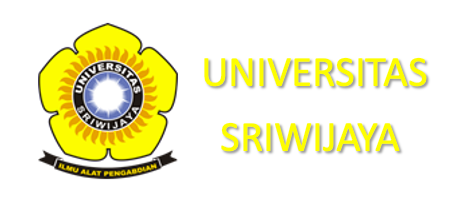PENGARUH VARIASI SERBUK KACA SEBAGAI PENGGANTI SEBAGIAN SEMEN TERHADAP KARAKTERISTIK FLOWABILITY SCC
Abstract
ABSTRAK: Limbah kaca yang berasal dari industri dan rumah tangga, memiliki komposisi bahan penyusun yang hampir sama dengan bahan penyusun semen. Penggunaan limbah kaca yang dibuat dalam bentuk serbuk kaca mampu berperan sebagai bahan pengganti sebagian semen, memberikan kontribusi sifat mekanik yang lebih baik serta berperan dalam mengatasi isu lingkungan. Penelitian dengan menggunakan serbuk kaca sebagai bahan pengganti sebagian semen ini dilakukan pada jenis semen yang mampu memadat sendiri (self compacting concrete, SCC). Self compacting concrete atau disebut SCC merupakan inovasi beton untuk mengatasi solusi dari proses pengecoran dan pemadatan yang sulit terutama pada elemen struktur beton dengan tulangan yang padat dan kompleks. Komposisi SCC harus mencapai kemampuan mengalir (flow) yang disyaratkan, oleh karena itu nilai flowbility menjadi indikator dalam penilaian SCC. Penelitian ini dilakukan untuk mengetahui pengaruh serbuk kaca sebagai substitusi sebagian semen terhadap karakteristik flowability dan nilai kuat tekan SCC dengan kondisi tanpa perawatan pasca pengecoran. Variasi serbuk kaca yang digunakan sebesar 0%;2,5%; 7,5%; 12,5%; dan 17,5% terhadap berat semen. Hasil pengujian beton segar menunjukkan bahwa penggunaan serbuk kaca membuat flowability SCC mengalami penurunan. Hal ini disebabkan oleh bentuk serbuk kaca yang bersudut. Namun demikian, pengukuran flowability dengan menggunakan pengujian slump flow, V-Funnel , dan L-box, menunjukkan bahwa semua komposisi masih memenuhi syarat sebagai SCC. Sedangkan, hasil pengujian kuat tekan menunjukkan peningkatan kekuatan optimum terjadi pada SCC 4 dengan substitusi serbuk kaca sebesar 7,5% dan kuat tekan mencapai 55,11 MPa atau mengalami peningkatan kekuatan tekan terhadap SCC 0 sebesar 17,66%.
Kata Kunci: SCC, serbuk kaca , binder, flowability, kuat tekan.
ABSTRACT: Glass waste originating from industry and households, has a composition of constituent materials which is almost the same as the ingredients of cement. The use of glass waste made in the form of glass powder can act as a substitute for part of cement, contribute to better mechanical properties and play a role in overcoming environmental issues. The research by using glass powder as a substitute material for some of this cement was carried out on the type of cement that is able to compact itself (self compacting concrete, SCC). Self compacting concrete or called SCC is a concrete innovation to overcome the solution of the casting and compaction process that is difficult, especially on concrete structural elements with dense and complex reinforcement. The composition of the SCC must achieve the required flow ability, therefore the value of flowbility becomes an indicator in the SCC assessment. This research was conducted to determine the effect of glass powder as a partial substitution of cement on the flowability characteristics and compressive strength value of SCC under conditions without post casting treatment. The variation of glass powder used was 0%, 2.5%; 7.5%; 12.5%; and 17.5% by weight of cement. The results of fresh concrete testing showed that the use of glass powder made SCC flowability decreased. This is caused by the shape of the angular glass powder. However, flowability measurement using slump flow, V-Funnel, and L-box testing, shows that all compositions still qualify as SCC. Meanwhile, the compressive strength test results showed an increase in optimum strength occurred in SCC 4 with glass powder substitution of 7.5% and compressive strength reaching 55.11 MPa or experiencing an increase in compressive strength against SCC 0 of 17.66%.
Keywords: SCC, glass powder, binder, flowability, compressive strength.





